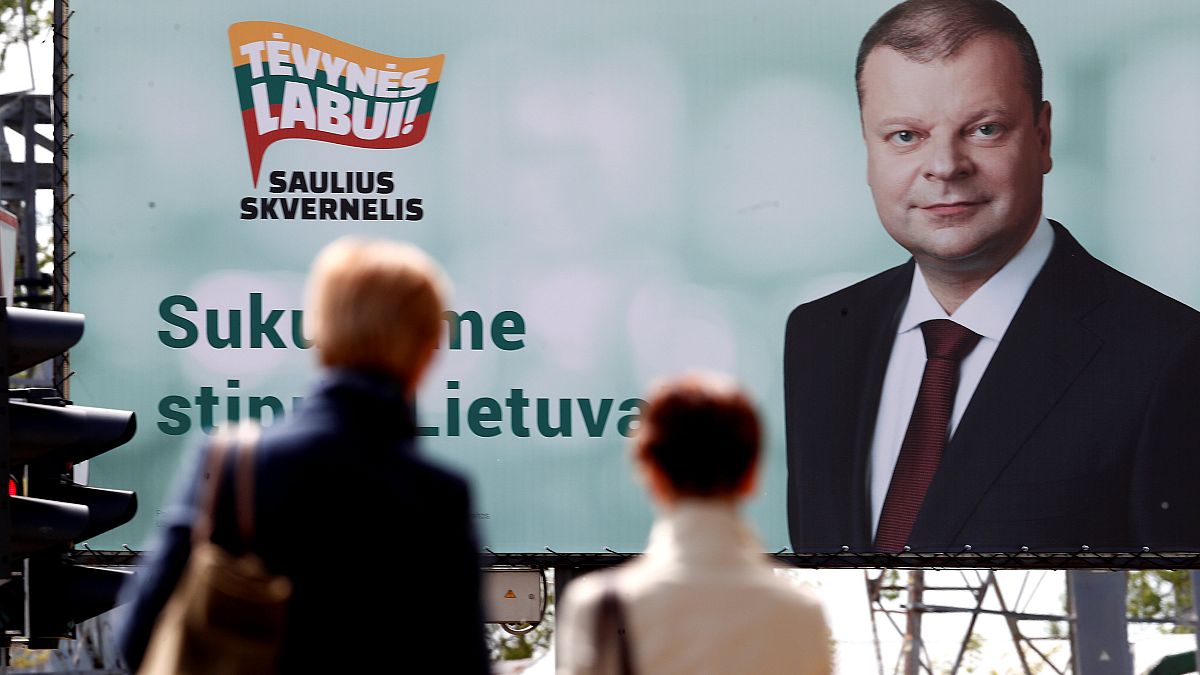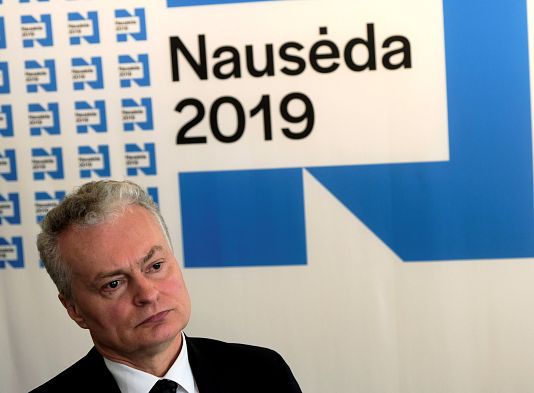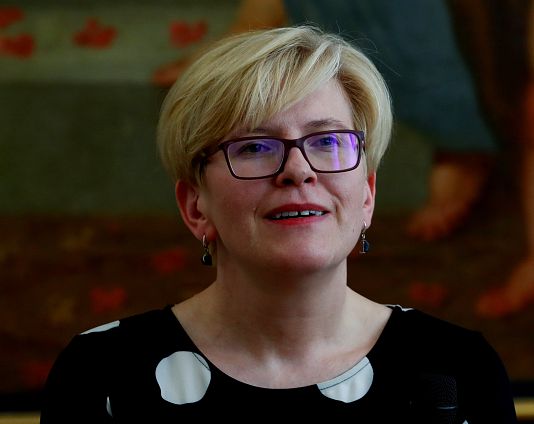Prime Minister Skvernelis says he will step down in July after failing to reach the run-off in the country's presidential election
Candidates Ingrida Simonyte and Gitanas Nauseda will head to a second round of the presidential election on May 26, as Prime Minister Saulius Skvernelis conceded defeat and said he planned to step down as prime minister in July.
Polling sites predicted Nauseda would get the top spot ahead of Simonyte.
The ruling Farmers and Greens Union (LVŽS) were put to the test this weekend when voters hit the polls to elect their next president.
The right-centre party fought against a perception that they wanted to concentrate all political power after choosing current Prime Minister Saulius Skvernelis as their candidate.
The race to replace current president Dalia Grybauskaitė, also known as the Iron Lady, looks more exciting than previous ones, political science professor Dr Ainė Ramonaitė told Euronews. Grybauskaitė is serving her second term in office and is not allowed to run in this election.
Though the presidential post in Lithuania is not seen as important as the prime minister's, three strong candidates are up for the post, including Skvernelis, which is highly unusual in the presidential running, explained the professor.
Gitanas Nausėda
Having refused to be associated with any political party, Nauseda has launched himself into this election as the "catch-all" candidate and may have the strongest chance of winning, said Ramonaitė.
"Because political parties in Lithuania are distrusted a bit, it's quite a good strategy to go as a non-partisan candidate," said Ramonaitė, adding that in the past non-partisan candidates have won the election.
An economist by profession, Nauseda supports a socially-oriented economy with an important welfare system — a big issue in Lithuania.
Due to his moderate stance on most issues, Nauseda was able to attract voters from very different sectors of society, though more urban than rural voters, said Ramonaitė.
However, this catch-all profile might not produce many loyal supporters, said the professor.
"So even though he's the most popular, we'll have to see if this is enough for him to get to the second round or win the elections."
Ingrida Šimonytė
As a former minister of finance, Simonyte also comes from an economic background. Even though she has the backing of Lithuania's main right-wing party Homeland Union — considered more anti-communist than conservative — she's still trying to portray herself as an independent candidate to appeal to a bigger electorate.
"She attracts young, pro-western voters and liberal voters, which can be a bit surprising given she's linked to the far-right party," said Ramonaitė.
Simonyte is very much right-wing within the Lithuanian definition, meaning she's pro-western and very anti-Russian. But in the western definition of left and right, she would be moderate, said Ramonaitė.
She also has the strongest backing on social media, according to the professor.
"However, it will be interesting to see how her strong social media backing translates in the polls," she added.
"Young people supporters are a bit more passive in elections. The question is if they will really come to the voting polls or if they are just supporting her online," said Ramonaitė.
Image and style matter most
The candidates have been careful to not stray from current Lithuanian foreign policy consensus. All of them are share pro-western, pro-European, and anti-Russian points of view, according to Ramonaitė.
So the candidates' performance will likely be measured by who best represents Lithuania in foreign affairs.
In Lithuania, the president is the head of state and commander-in-chief. The position is also responsible for the country's foreign policy. However, most domestic policy is decided by the prime minister.
If none of the candidates secures more than 50% of the vote in the first round, a presidential run-off will take place on May 26, the same day as the European Parliament election.
Other events on the weekend agenda
This Sunday, Lithuanians also voted to allow dual citizenship in their country.
"This is important because there is a big number of Lithuanians living and working abroad," said Ramonaitė.
In 2017, more than 72% of Lithuanians emigrating to other countries were aged between 15 to 44 years old, according to Lithuania's Migration in Numbers website.
Many Lithuanians left for other EU members states offering higher wages after the financial crash.
The question is whether they can retain Lithuanian citizenship if they get citizenship from another country, explained the professor.
Right now, the problem is that the clause in the constitution that doesn't allow dual citizenship is a very important one and is very difficult to change because it requires the support of half of all eligible voters said Ramonaitė.
"And with the turnout in referendums being usually quite low, it's difficult to get the votes of the half of all eligible voters," she said.
Only citizenships of other European Union members or NATO countries would be eligible for dual citizenship if the referendum goes through.
In general, all the main political parties support the idea of dual citizenship.


